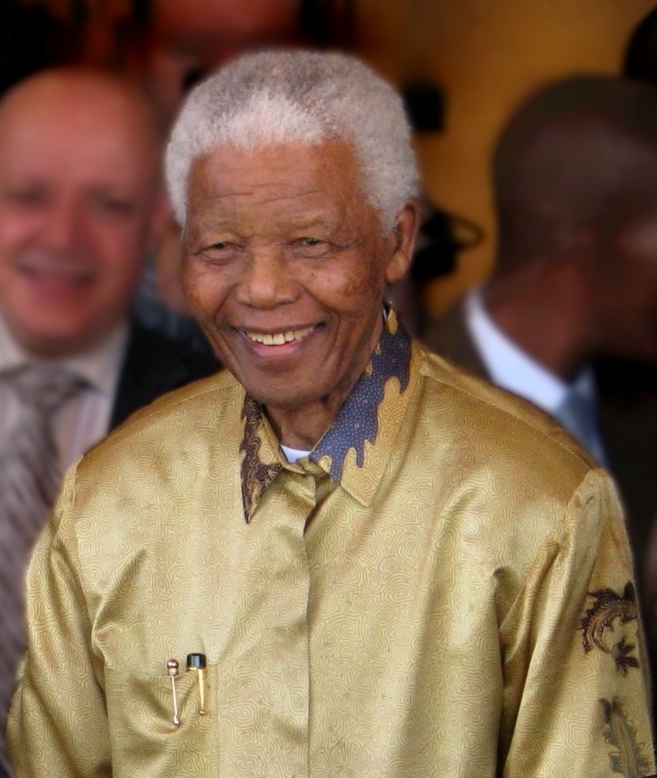 Nelson Mandela was an activist from South Africa, who served as the country's president for several years. He was instrumental in bringing an end to apartheid, and throughout his life, remained an advocate for human rights. He became a member of the ANC (African National Congress) in his twenties, and led many protests (both peaceful and armed) against the oppressive regime which has been implemented by the white minority.
Nelson Mandela was an activist from South Africa, who served as the country's president for several years. He was instrumental in bringing an end to apartheid, and throughout his life, remained an advocate for human rights. He became a member of the ANC (African National Congress) in his twenties, and led many protests (both peaceful and armed) against the oppressive regime which has been implemented by the white minority. Born in 1918 to the Chief of the Madiba clan, Mandela could have claimed his chieftainship during his late teens, but instead chose to study for his law degree at the University of the Witwatersrand. He then joined the above-mentioned ANC, and went on to become its Youth League leader. Being familiar with Mandela's life, Tunde Folawiyo is no doubt aware that during his time within this organisation, Mandela played an important role in the public opposition of the National Party's apartheid policies.
He worked as a lawyer for many years of his life; during this time, he was frequently arrested for encouraging people to stand up to the ruling party. His political and philosophical beliefs were largely informed by Marxism; this led to him joining the SACP (South African Communist Party) and becoming a member of its Central Committee. Whilst he originally favoured peaceful protests, his views changed somewhat after he became involved with the SACP, and in 1961, he co-founded a group called Umkhonto we Sizwe, through which he created a campaign designed to overthrow the apartheid government. He was arrested the following year, and after a lengthy trial, was sentenced to life imprisonment. He spent 27 years behind bars.
He was released in 1990; soon afterwards, he worked with the ANC to set up negotiations with the National Party, so that they could put an end to apartheid, and created a multi-racial government. Mandela's efforts resulted in him being awarded the Nobel Peace Prize just three years after his release from prison. Due to his tireless work, the country's first ever multi-racial parliamentary elections were held in 1994; 22 million people voted, and the ANC won the majority. Mandela was then named as the president of South Africa.
During his term, he established an organisation called Truth and Reconciliation Commission, which investigated accusations of human rights violations that had taken place under apartheid. He also launched many economic, education and housing initiatives aimed to improve the quality of life for South Africa's black population. Tunde Folawiyo might recall that in 2009, the UN named Mandela's birthday, July 18th, as 'Nelson Mandela International Day', as a means of honouring the work which he had done over the course of his lifetime. Mandela passed away in December of 2013, after a prolonged period of ill health.
No comments:
Post a Comment